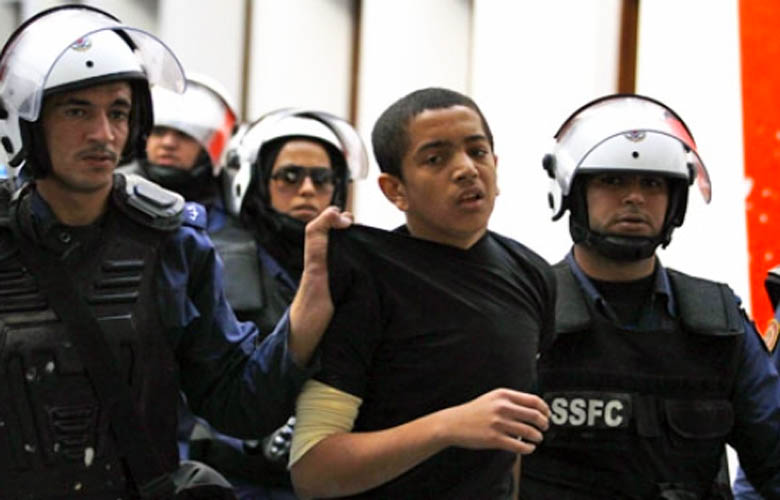Alwaght- United Nations human rights experts urged the Bahraini regime on Thursday to release detained activists, end restrictions on freedom of expression, and end discrimination against women.
Bahrain, the Al Khalifa royal family rules with an iron fist, has cracked down on perceived threats since the popular Islamic Uprising protests in 2011were quashed with the help of neighboring Persian Gulf monarchies especially Saudi Arabia and UAE.
Demonstrators have clashed frequently with security forces, who have been targeted in several bomb attacks.
UN panel expert Olivier de Frouville told a briefing in Geneva that: “Since last year there is a new regression, a fresh assault against freedom of expression, against civil society that is critical, and a marginalization of political opposition parties.”
The panel’s independent experts voiced concern at an increased use of violence by police during peaceful demonstrations “including reports indicating six fatal incidents during demonstrations and ten other extrajudicial killings in 2017”.
The kingdom has used its anti-terrorism act extensively “outside the scope of terrorism, including against human rights defenders and political activists”, they said.
Authorities “should also ensure that the rights to a fair trial and access to justice are respected in all criminal proceedings for terrorism”, the panel said.
It cited cases including that of Nabeel Rajab, a leading figure in pro-democracy protests, who was sentenced to five years in prison in February for criticizing Saudi Arabia’s air strikes in Yemen and accusing Bahrain’s prison authorities of torture. He was already serving a two-year sentence.
“We called on (Bahrain) to change its laws, to stop reprisals, also to release immediately and unconditionally anyone held solely for the peaceful exercise of their rights,” de Frouville said, adding that they included Rajab.
The panel also denounced the reported targeting of opposition-linked Al-Wasat newspaper, leading to its closure in 2017.
Voicing concern at reports of arbitrary arrests by security forces, including incommunicado detention, it named Khalil al-Marzouq, a former member of parliament for the opposition group al-Wefaq, and Maryam al-Khawaja, a prominent activist.
Bahrain should repeal all discriminatory provisions against women in its legislation, it said, and grant them equal rights with men in transmitting their nationality to their children and in divorce, including economic rights.
Thousands of anti-regime protesters have held demonstrations in Bahrain on an almost daily basis ever since a popular uprising began in the country in mid-February 2011.
They are demanding that the Al Khalifah dynasty relinquish power and allow a just system representing all Bahrainis to be established.
Manama has gone to great lengths to clamp down on any sign of dissent. On March 14, 2011, troops from Saudi Arabia and the United Arab Emirates were deployed to assist Bahrain in its crackdown.
Many have lost their lives and hundreds of others sustained injuries or got arrested as a result of the Al Khalifah regime’s crackdown. The regime has also revoked citizenship of many activists while others are being held incommunicado. The Manama regime enjoys full backing of the US and Britain in its brutal crackdown on peaceful dissent.



























